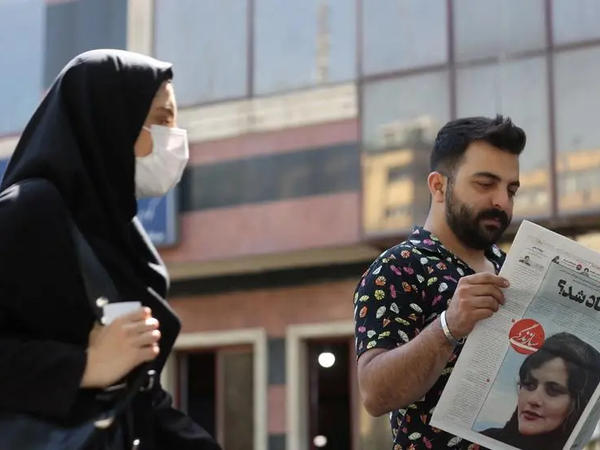President Masoud Pezeshkian's government has intensified its crackdown on the press, with the Defending Free Flow of Information in Iran (DeFFI) reporting a wave of judicial and security measures impacting 78 journalists and media outlets in its first 100 days.
DeFFI, a non-profit organization dedicated to protecting media freedoms, noted that the government’s restrictions on information access have intensified during the Pezeshkian administration.
“In the first 100 days of Masoud Pezeshkian’s presidency, not only was there no significant change in the indicators of press freedom in Iran, but organized disruptions to free information continued, patterns of suppressing freedom of expression were expanded, and 78 media outlets and journalists experienced judicial and security confrontations by the Islamic Republic,” wrote DeFFI on Friday.
Established amid the Women, Life, Freedom protests in 2022, DeFFI was formed by journalists, lawyers, and human rights advocates to document media suppression and advocate for free expression.
The protests, which called for greater social freedoms and led to widespread unrest, triggered unprecedented levels of state repression targeting journalists and media outlets. This latest report suggests that despite the change in presidential administration, there has been little to no improvement in press freedom.
DeFFI’s report highlights that Pezeshkian’s term has seen a continuation of repressive tactics, with the number of imprisoned journalists increasing from eight to ten during the administration’s first 100 days. Temporary detentions were also prevalent, affecting journalists such as Fatemeh Gholipour, Fardin Mostafaei, Ajdar Piri, and Reza Valizadeh between July and November.
According to DeFFI, Pezeshkian’s administration has presided over a sharp escalation in legal actions against the press. From late July through early November, political and press courts issued criminal charges in 32 documented cases, resulting in prison sentences, corporal punishment, and fines. Seven journalists, including Niloufar Hamedi and Elahe Mohammadi, received a cumulative sentence totaling over 13 years in prison, 70 lashes, and substantial fines.
Hamedi and Mohammadi are recognized for their reporting on the death of Mahsa Amini in September 2022. Their work brought international attention to the incident, leading to widespread protests in Iran. In September 2022, shortly after their coverage of Amini's death, both journalists were arrested. They faced charges including "collaborating with the hostile US government," "acting against national security," and "propaganda against the system." In October 2023, the Tehran Revolutionary Court sentenced Hamedi to seven years and Mohammadi to six years in prison.
The DeFFI data reflects that September was a particularly fraught month for press freedoms, with judicial and security confrontations against journalists increasing by 30% from August. In September, DeFFI documented that at least 24 journalists and media entities faced government confrontations in 28 separate cases, underscoring a pattern of intensified pressure on those reporting critically on state matters.
DeFFI’s findings also reveal a rise in legal complaints against media professionals since Pezeshkian took office. During this period, at least 38 new complaints were filed, with government entities accounting for more than half. Prominent complainants included the Tehran Prosecutor’s Office, Cyber Police, and several high-profile ministries, including those of Oil, Culture, and Economy. While Pezeshkian previously committed to withdrawing government-led complaints against journalists, the report notes that officials not only failed to retract cases but filed numerous new complaints.
In addition to increased judicial actions, the report describes ongoing violations of journalists’ rights during investigations. Between July and November, there were 74 documented instances of rights violations, with unauthorized or non-transparent trials occurring in 46 cases. DeFFI reported other violations, including interference in journalistic activities, arbitrary detentions, denial of legal representation, and seizure of personal property. Physical assaults on journalists were also reported, with two instances of documented physical abuse by security forces.
Since its establishment, the Islamic Republic has consistently suppressed independent media through arrests, torture, and imprisonment.
While Pezeshkian’s government initially suggested it would support freer expression, DeFFI’s findings suggest otherwise, pointing to an entrenched pattern of media suppression.
